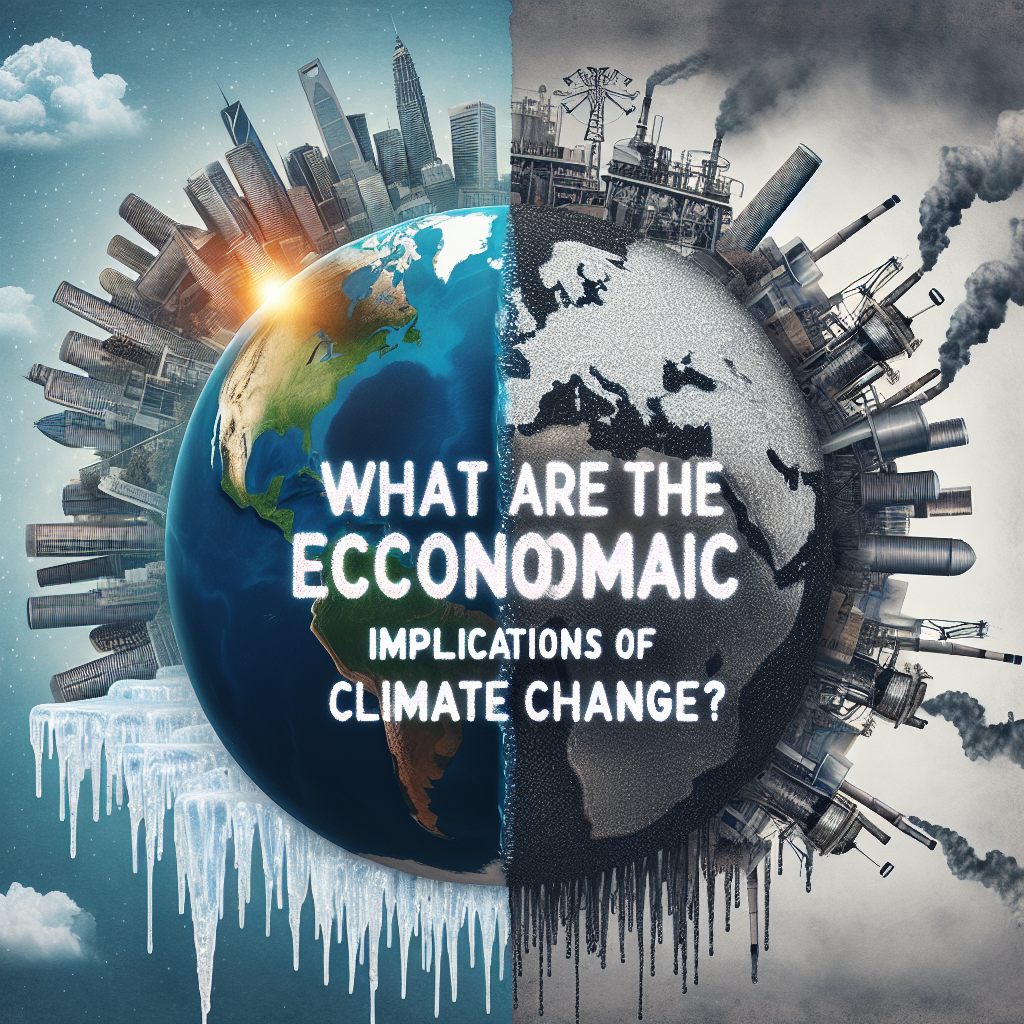Climate change is one of the most pressing issues of our time, with far-reaching implications for our economy. The effects of climate change, such as rising sea levels, extreme weather events, and increasing temperatures, can have significant economic consequences. In this article, we will explore the economic implications of climate change and the ways in which it can impact our economy.
One of the most immediate economic implications of climate change is the cost of natural disasters. As the frequency and intensity of extreme weather events increase, so too does the cost of rebuilding and recovery. According to a report from the Intergovernmental Panel on Climate Change (IPCC), the economic losses from natural disasters are expected to increase by 50% by 2030. This could have a major impact on insurance companies, governments, and businesses that are forced to bear the cost of these disasters.
In addition to the cost of natural disasters, climate change can also have long-term effects on the economy. For example, rising sea levels could threaten coastal communities, leading to displacement and loss of property value. This could have a ripple effect on the housing market, tourism industry, and local businesses. Similarly, changes in temperature and rainfall patterns could impact agriculture, leading to food shortages and price increases.
The transition to a low-carbon economy is another economic implication of climate change. As governments around the world work to reduce greenhouse gas emissions, industries that rely heavily on fossil fuels may face challenges. For example, the coal industry could see a decline as renewable energy sources become more cost-effective and popular. This transition could lead to job losses in certain sectors, while creating new opportunities in green energy and clean technology.
On a global scale, climate change can also impact trade and economic growth. For example, the effects of climate change in one country can have far-reaching implications for other countries. A decrease in agricultural production in one region could lead to food shortages in another, affecting global food prices and trade. Similarly, changes in weather patterns can disrupt supply chains and transportation networks, leading to delays and increased costs for businesses.
It is clear that the economic implications of climate change are significant and far-reaching. In order to mitigate these impacts, governments, businesses, and individuals must take action to reduce greenhouse gas emissions and adapt to a changing climate. This will require investment in clean energy, infrastructure, and technology, as well as policies that promote sustainability and resilience.
FAQs:
Q: How will climate change affect my investments?
A: Climate change can have a significant impact on investments, particularly in industries that are vulnerable to its effects, such as energy, agriculture, and insurance. As the cost of natural disasters rises and regulations on greenhouse gas emissions become stricter, companies that are not prepared for these changes may face financial risks. On the other hand, investments in renewable energy and sustainable technologies could present opportunities for growth.
Q: What can I do to help mitigate the economic impacts of climate change?
A: There are several things that individuals can do to help mitigate the economic impacts of climate change. This includes reducing energy consumption, supporting renewable energy sources, and advocating for policies that promote sustainability and resilience. By making small changes in your everyday life, such as using public transportation, recycling, and reducing waste, you can help reduce your carbon footprint and contribute to a more sustainable future.
Q: How can businesses adapt to the economic implications of climate change?
A: Businesses can adapt to the economic implications of climate change by incorporating sustainability into their operations and supply chains. This can include investing in energy efficiency, renewable energy, and waste reduction, as well as preparing for the impact of extreme weather events and natural disasters. By taking proactive measures to address climate change, businesses can reduce their risks, enhance their resilience, and create new opportunities for growth.
